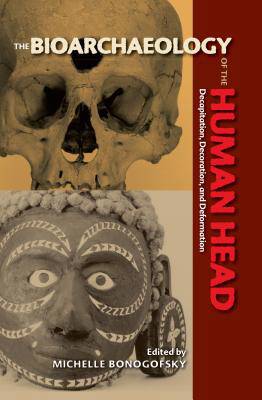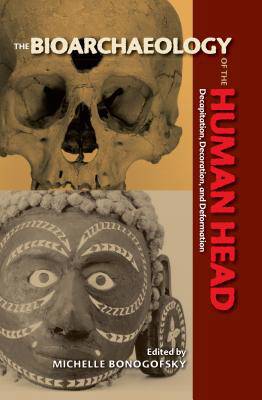
En raison d'une grêve chez bpost, votre commande pourrait être retardée. Vous avez besoin d’un livre rapidement ? Nos magasins vous accueillent à bras ouverts !
- Retrait gratuit dans votre magasin Club
- 7.000.000 titres dans notre catalogue
- Payer en toute sécurité
- Toujours un magasin près de chez vous
En raison de la grêve chez bpost, votre commande pourrait être retardée. Vous avez besoin d’un livre rapidement ? Nos magasins vous accueillent à bras ouverts !
- Retrait gratuit dans votre magasin Club
- 7.000.0000 titres dans notre catalogue
- Payer en toute sécurité
- Toujours un magasin près de chez vous
The Bioarchaeology of the Human Head
Decapitation, Decoration, and Deformation
48,95 €
+ 97 points
Description
"A valuable survey of the many ways that human heads have been taken, modified, and curated by various cultures around the world. Good critical reviews of the context and meaning of human head collecting across time and space. Includes some innovative analytical techniques for determining the origins and identities of disembodied heads."--John W. Verano, Tulane University "A welcome contribution to the growing literature of anthropological perspectives of the human skull."--John Krigbaum, University of Florida Building on the notion that human remains provide a window into the past, especially regarding identity, the contributors to this volume reflect on intentional and ritualized practices of manipulating the human head within ancient societies. These essays explore the human head's symbolic role in political, social, economic, and religious ritual over the centuries. By focusing on the various ways in which the head was treated at the time of death, as well as before and following, scholars uncover the significant social meaning of such treatment. This illuminating collection highlights biological and cultural manipulations of human heads, ultimately revealing whose skulls and heads were collected and why, whether as ancestors or enemies, as insiders or outsiders, as males, females, or children. Featuring a wealth of case studies from scholars across the globe, this volume emphasizes social identity and the use of the body in ritual, making it particularly helpful to all those interested in the cross-cultural handling of skulls and heads.
Spécifications
Parties prenantes
- Editeur:
Contenu
- Nombre de pages :
- 344
- Langue:
- Anglais
- Collection :
Caractéristiques
- EAN:
- 9780813061771
- Date de parution :
- 28-05-15
- Format:
- Livre broché
- Format numérique:
- Trade paperback (VS)
- Dimensions :
- 156 mm x 234 mm
- Poids :
- 530 g

Les avis
Nous publions uniquement les avis qui respectent les conditions requises. Consultez nos conditions pour les avis.





